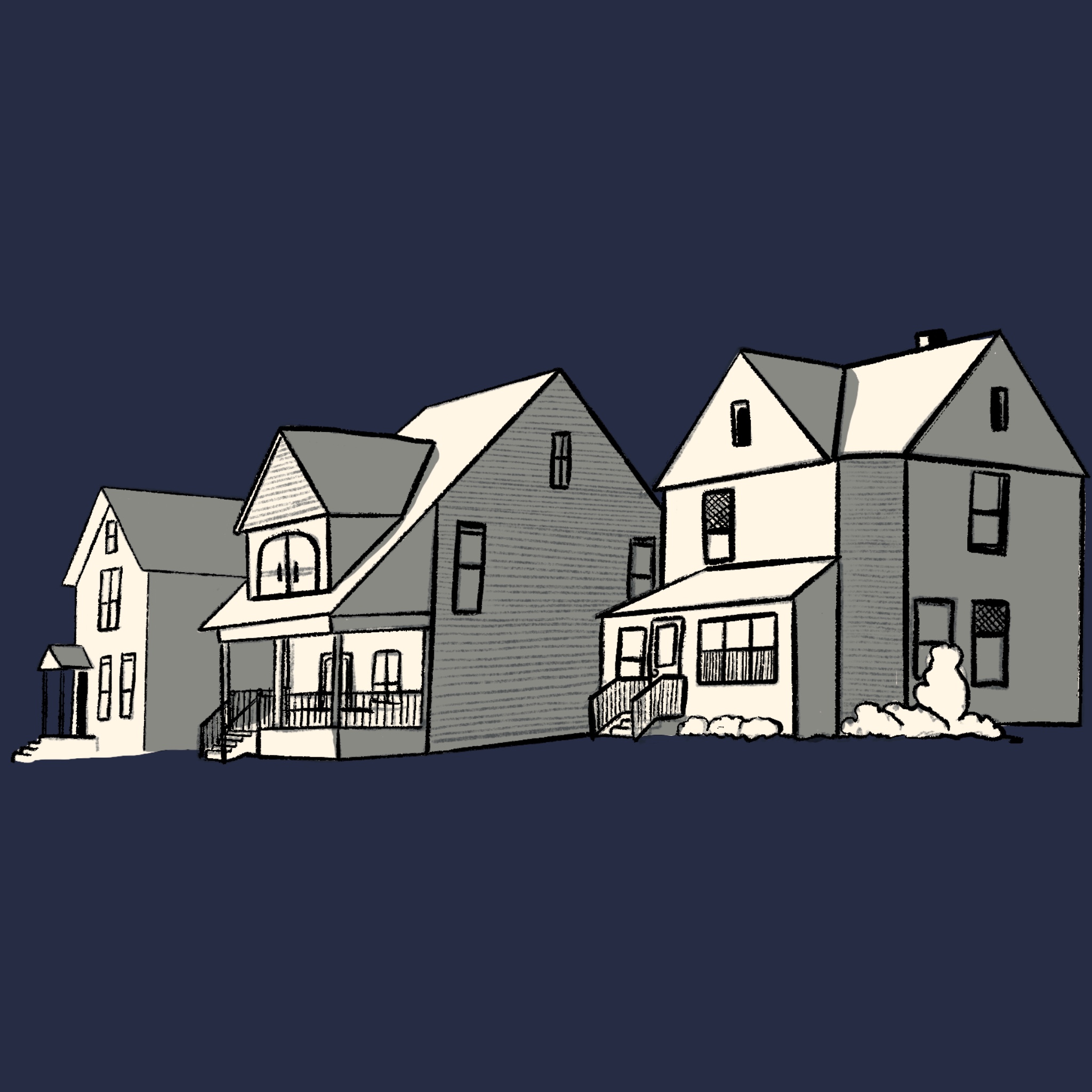Editor’s note: This is the first in a two-part series on two cities’ responses to the recent Supreme Court case ruling that camping bans don’t violate the Constitution. Read part two here.
Brock Spurgeon’s son keeps turning him down.
His son is unsheltered, and Spurgeon said he’s unsuccessfully offered him a room several times on one condition—that he go to rehab.
“Why doesn’t he want rehab? Because he can live on the damn street and get high all damn day,” Spurgeon said during a Grants Pass City Council meeting on July 10. “I’ve got a damn kid out there. When does an OD call come through and when is it my kid that dies in these goddamn parks? It’s more than just parks. It’s people’s lives.”
Spurgeon is a member of Park Watch, a group that has tasked itself with monitoring and even counting unsheltered people in Grants Pass’ public parks.
A Supreme Court case thrust Grants Pass, Oregon, with a population of about 40,000, into the spotlight for its approach to homelessness. That strategy emphasizes camping bans, rather than investments in homeless prevention and other services, according to city records.

Now as residents wait for a court to lift a years-long injunction limiting Grants Pass’ camping ban, city leaders are working to maintain residents’ expectations and planning how to comply with state laws restricting camping bans and sweeps.
“We’re going to do our best to get back,” Mayor Sara Bristol said during the city council meeting. “Probably you’re going to see some parks banned initially and maybe still some camping allowed in other parks for the time being because we don’t have a shelter or other established place for them to go.”
If Grants Pass were to ban camping in every park, the city would need to allow it elsewhere, like sidewalks or parking lots, said Bristol, who didn’t respond to an interview request.
“We have to take these things into consideration,” she said. “Where will the people go if they’re not in one place?”
Grants Pass City Manager Aaron Cubic, who didn’t respond to an interview request, said during the meeting that “no matter how the council moves forward with the codes they write, … law enforcement resources will not allow for the in-the-moment enforcement of every possible site every possible day.”
During public comment, some residents urged the city to ignore the injunction
Last month, the US Supreme Court ruled in City of Grants Pass v. Johnson that camping bans don’t violate the constitution, giving states and local governments the green light to enforce laws criminalizing homelessness.
The order reverses an earlier ruling from the Ninth Circuit Court, which left the city with an injunction limiting its camping ban enforcement to a single park and the hours of 7 a.m. to 7 p.m.
The case has returned to the Ninth Circuit, where the city expects the court to lift the injunction within 90 days, Cubic said during the city council meeting.
Supporters of camping bans say they encourage unsheltered people to seek housing and other assistance, while service providers say the bans fail to reduce homelessness and leave people with fines and criminal records that make it harder to obtain housing later.
During the city council meeting two weeks ago, about 30 people, some of whom don’t live in Grants Pass, took the opportunity to express their frustrations with unsheltered people and their camps.
“In the Bible, it says because of lawlessness, the love of many would wax cold,” resident Kim Hector said. “The other thing the Bible says is if you don’t work, you don’t eat, and I’m sick of the coddling of the homeless population when they take precedence over the law-abiding citizens.”
The majority of those who spoke were older adults, including an 80 year old, who said they were concerned about unsheltered people causing crime and wildfires. Some residents encouraged the city to ignore the injunction.
One resident who offered an alternative perspective was met with boos from the crowded room. “Substance use and mental health disorders are not the driving cause of homelessness,” Ruth Dailey said. “This is a housing crisis, not a personal moral failure, and people shouldn’t be punished for not being able to find a home.”
Some residents pushed for a city-funded camp
“It’s sad to see us fighting and bickering over this argument, and we’ve got to find a solution no matter what,” Cody Goodman, a 32-year-old resident experiencing homelessness, said during the public comment session.
[ Read more: Camping bans get a green light from the Supreme Court ]
Goodman, who suggested the city could fit all its unsheltered residents in a baseball field, was one of several people at the meeting who floated the idea of Grants Pass creating an urban campground, or a city-funded campsite for unsheltered people.
“We’d have to regulate it,” Goodman said. “It would be hard, but that literally would be less money, less costs, less government, less police, less everything than having them all over the place. People (would be) happy to get their parks back. The homeless (would) have something. They need a place no matter what. You’re not going to house all these people fast enough.”
Cubic said during the meeting that if Grants Pass creates an urban campground or other designated area for unsheltered people, the city would take on risks connected to the site. Grants Pass would need to provide restroom facilities, wash stations and ensure the site is safe, he said.
“So security would also need to be something that would be considered,” Cubic said, “because if something happened there, there’d be some responsibility and ownership on the city’s part because we told them that’s where to go.”
A state law restricting camping bans seems to have less impact than complaints about camps
Whatever form it takes, Grants Pass’ new camping ban will have to follow restrictions outlined in a state law passed in 2021 as House Bill 3115.
The law says city or county regulations on camping must be “objectively reasonable” to people experiencing homelessness in terms of their restrictions on when and where people can camp and their conduct while camping. Good news: There’s jargon for this—time, place, and manner.
The law says whether or not a camping regulation is reasonable is “based on the totality of the circumstances, including, but not limited to, the impact of the law on persons experiencing homelessness.”
Last year, Portland passed a camping ban to comply with House Bill 3115, but a judge blocked the city from enforcing it four days before it went into effect. That ordinance had banned camping on all public property from 8 a.m. to 8 p.m., and a third violation would have resulted in a fine of up to $100 or up to 30 days in jail.
In May, the Portland City Council approved a new ordinance that outlaws camping on public property if someone has access to shelter. Under the ordinance, people camping on public property can’t block sidewalks, private property or businesses. They also can’t start fires, use gas heaters, dig, damage the environment, and build, disassemble or sell bicycles.
The ban carries punishment of a fine of up to $100 or up to seven days in jail.
The Eugene City Council updated its camping ban in May with an ordinance focused on public property where camping isn’t allowed, including parking lots and sidewalks with widths under four feet.
Claire Herbert, an associate professor in the University of Oregon’s sociology department, is researching how House Bill 3115 affects people excluded from the housing market. In Eugene, she said unhoused people aren’t feeling an impact from the city’s camping restrictions.
In her interviews with police, social workers and people who work in parks and sanitation, “there’s not much, from their perspective, that has changed, either,” Herbert said. “But that’s, in part, because Eugene officials tend to use their discretion a lot when they’re deciding when to move people. They’re not moving encampments just because they are maybe slightly too close to a school or something like that. They’re moving encampments when residents are complaining.”
[ Read more: Incarcerated students are eligible for Pell Grants, but higher ed access depends on the prison ]
Herbert said Oregon communities have grown really frustrated with unsheltered homelessness, leading to policies like camping bans that make the problem less visible but don’t solve it.
“That’s where a lot of municipalities are going because they’re feeling so desperate about the housing situation,” Herbert said. “Instead of looking backward to the larger structural problems that are creating the high rates of unsheltered homelessness, they are focusing on this individual level of, well, we can arrest or ticket our way out of the problem.”
How much does Grants Pass spend on homelessness?
A third of the renters in Josephine County, home to Grants Pass, spend more than half their income on rent, according to a 2020 housing report from the Oregon Housing Alliance. The report estimates the county needs about 1,900 affordable housing units to meet the needs of extremely low-income households.
Cubic, the city manager for Grants Pass, didn’t respond to an email asking how much the city devoted to homeless services in its current budget.
The city’s budget for the 2025 fiscal year ending June 30 doesn’t specify its total spending on homelessness, which is funded entirely by federal Community Development Block Grant (CDBG) funding.
For this fiscal year, the city budgeted $577,000 for its CDBG fund, with all but $6,400 reserved for contracted services. The budget says the city historically has underspent its annual CDBG allocations and usually has a surplus of leftover funds.
This year, the US Department of Housing and Urban Development (HUD) gave the city $381,398 in CDBG funds. Last week, the city council approved a HUD-required plan for spending those funds, from which Grants Pass set aside the maximum allowed 20%, or $76,279, for administrative costs—the city’s second largest use of its CBDG funds based on the report’s spending breakdown.
Of the remaining $305,119, the city earmarked $40,863 for homelessness-related services—about half what the city planned to spend on administrative costs.
[ Read more: Why some employers are building their own workforce housing ]
Grants Pass’ homelessness spending included $16,345 for homeless youth services, $8,172 for rental and mortgage assistance, $8,173 for a mobile kitchen that serves unsheltered people and $8,173 for Welcome Home Oregon, a nonprofit that provides people leaving prison with transitional housing and other reentry tools.
According to last week’s city council agenda, the organizations that received those funds have already spent them all.
The agenda also says that during the last few years, the city spent its reserve of CDBG funds on its weatherization and home rehab programs.
Bristol said the city is studying how other Oregon communities have set camping restrictions, “but we have to allow people to sleep somewhere. It doesn’t have to be a city park, but … you don’t want them on your lawn, we don’t want them on private property, people’s homes, people’s businesses, and so that leaves public property.”
Contact Streetlight editor Mollie Bryant at 405-990-0988 or bryant@streetlightnews.org. Follow her reporting by joining our newsletter.
Streetlight, previously BigIfTrue.org, is a nonprofit news site based in Oklahoma City. Our mission is to report stories that envision a more equitable world and energize our readers to improve their communities. Donate to support our work here.



